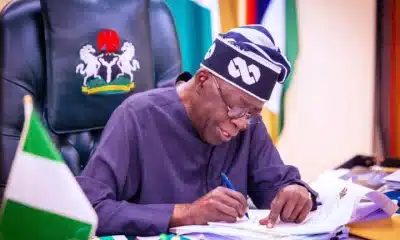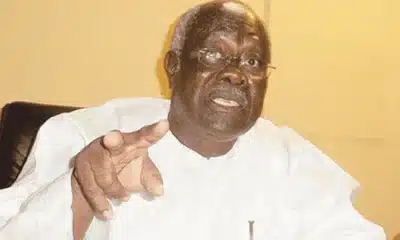Nigeria News
N500 Billion Palliative: NLC Kicks, Demand 300% Pay Rise

The Nigeria Labour Congress (NLC) has kicked against President Bola Tinubu‘s proposed N500 billion palliative for fuel subsidy removal.
The labour union said the N500 billion proposed by the President is inadequate to cushion Nigerian workers’ hardships due to the fuel subsidy removal.
Recall that Tinubu had on Wednesday written to the House of Representatives seeking approval for N500 billion to cushion the effects of petrol subsidy removal.
The president, in his letter, proposed an amendment to the 2022 Supplementary Appropriation Act.
He said, “I write to the House of Reps to approve the amendment of the 2022 Supplementary Appropriation Act in accordance with the attached.
“The request has become necessarily important to, among other things, the source for funds necessary to provide palliatives to mitigate the effect of the removal of fuel subsidy on Nigerians.
“Thus, the sum of N500bn only has been extracted from the 2022 Supplementary Act of N819,536,937,815 for the provision of palliative to cushion the effect of petrol subsidy removal.”
The House is expected to hold a plenary today on the president’s request.
However, the NLC has insisted that the proposed amount is too small to lift about 125 million Nigerians out of poverty.
Reacting to the development, the National Treasurer of the NLC, Hakeem Ambali, argued on the extent the N500 billion can go.
He told The Punch in an interview that the amount would, “We have over 125m Nigerians that are technically poor. To what extent can this cushion the effects of this economic hardship?”
Speaking further on better alternatives to explore by the President, the NLC official asked for a “Minimum wage review of 300 per cent to all workers; granting licences to individuals for modular refineries to refine petrol locally; granting economic stimulus loan to SMEs at 15 per cent rate.’
‘’The government should provide social benefits for aged and unemployed youths; agric loans to farmers and youths through the Agric Bank and community banks at single digit rate; provide alternative energy supply such as massive investment in solar power and Compressed Natural Gas to motorists.
“Fix the refineries; reverse the privatization of electricity back to the state due to poor performance; Execute metro rail line projects in all state capitals and reduction of school fees for students of tertiary institutions.”












